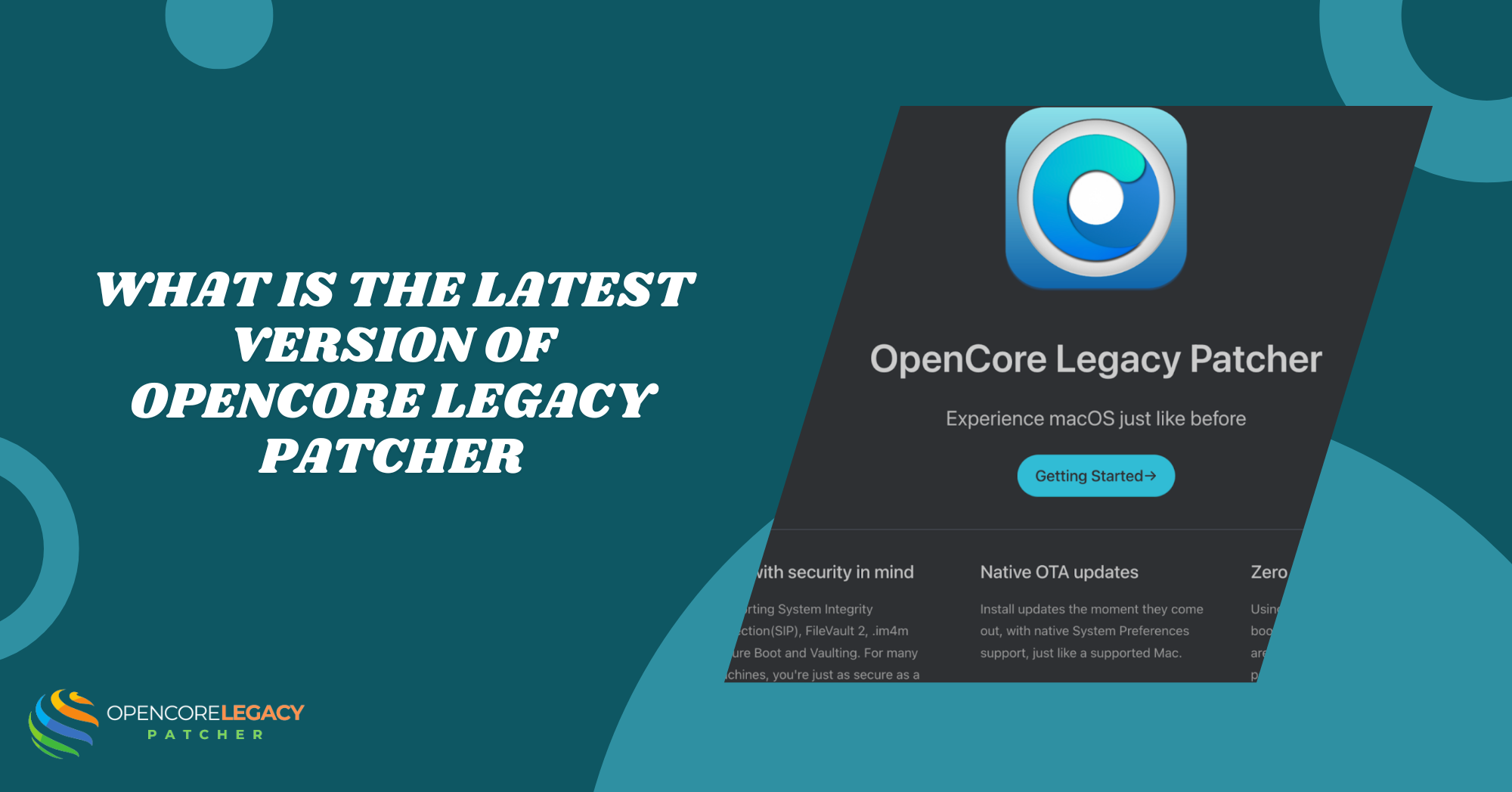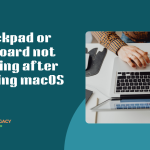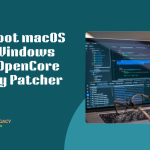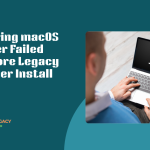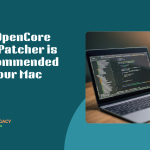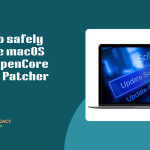Table of Contents
ToggleIntroduction to OpenCore Legacy Patcher Versions
Every OpenCore Legacy Patcher release follows a versioning system that helps users know what’s new, what’s stable, and what might still be experimental.
Latest Version Of Opencore Legacy Patcher is usually labeled with numbers like “1.0.0” or “0.6.9,” and each release includes detailed notes about changes, fixes, and features. This helps you stay informed and pick the right build for your Mac model.
Why Staying Updated Matters
Keeping your OpenCore Legacy Patcher up to date isn’t just about getting the latest features, it’s about making sure your Mac runs smoothly with new macOS updates.
Apple frequently changes things under the hood, so using an outdated version might cause boot issues, broken graphics, or patching failures. Staying current gives you the best performance and compatibility.
What Is the Latest Version of OpenCore Legacy Patcher?
As of now, the latest stable release is OpenCore Legacy Patcher version 1.5.3. This version brings expanded support for macOS Sonoma and improved stability for many older Macs. It’s designed to work with a wide range of Intel-based Mac models that Apple no longer officially supports.
Notable Improvements and New Features
This release includes better GPU acceleration support, smoother updates for newer macOS builds, and fixes for common bootloader issues.
It also enhances compatibility with MacBook models from 2012 to 2017. If your Mac was previously unsupported or had issues with graphics or sound, this update likely solves that.
Download OpenCore Legacy Patcher Today—Your Mac Deserves a Second Chance!
Patch Smarter, Not Harder—Get the Tools You Need for Modern macOS on Older Hardware
Where to Find the Latest Version Safely
To avoid any risk, always download OpenCore Legacy Patcher from its official GitHub repository. This ensures you’re getting a verified, up-to-date version straight from the developers. The GitHub page also includes release notes and guides, which are super helpful.
Avoiding Unverified or Outdated Builds
Never trust third-party websites or random links claiming to offer the patcher. Some may have outdated versions, or worse, files laced with malware.
Always check the developer’s GitHub page to make sure you’re getting the real thing. If you’re ever unsure, the Mac modding community on forums like MacRumors or Reddit is a great place to double-check.
How to Check Your Installed Version
You can check your installed version through various means, some are given below:
Verifying OpenCore Version via Terminal or GUI
Not sure which version of OpenCore you’re using? You can check it right from macOS. Open Terminal and type the following:
nvram 4D1EDE05-38C7-4A6A-9CC6-4BCCA8B30102:opencore-version
View the current version. Or, if you prefer something visual, apps like OpenCore Legacy Patcher’s GUI often display the version during launch.
Comparing with the Latest Online Release
Once you know your version, head over to OpenCore Legacy Patcher’s official GitHub page. Compare your version number with the latest one listed there. If there’s a newer release, it’s a sign your setup could benefit from a refresh.
How to Update OpenCore Legacy Patcher
Updating macOS with OpenCore is easy and keeps your Mac humming along with the latest improvements. So you also need to make sure the OpenCore is updated as well. Just download the latest version from GitHub. Once it’s on your Mac, run the new installer just like you did before—it’ll walk you through the setup.
Replacing Existing EFI Files and Patching Again
After installation, you’ll need to replace your existing EFI files. Use the Patcher to build a new EFI, mount your EFI partition, and copy over the updated files.
Don’t forget to rerun the Post-Install Root Patch if your model needs it—this keeps everything compatible after the update.
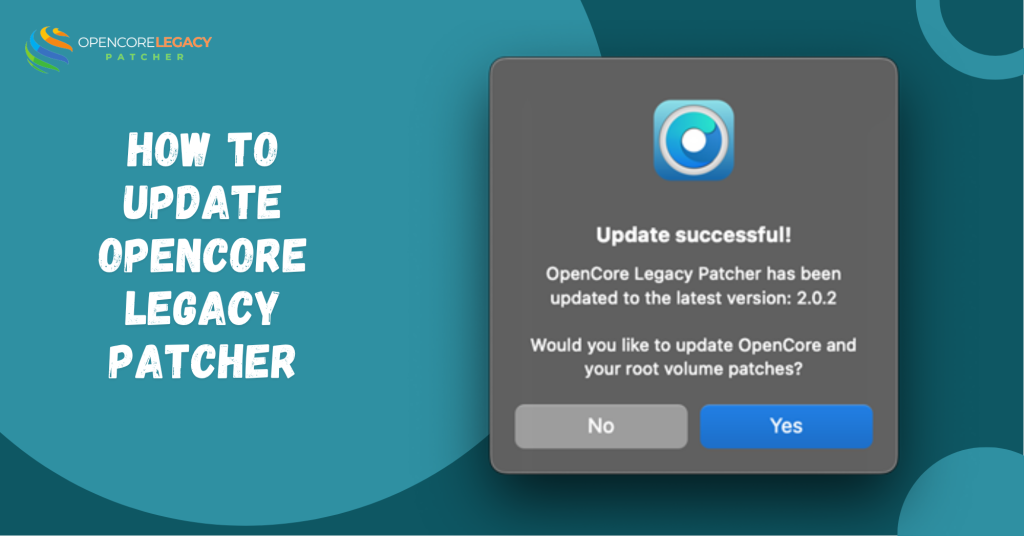
Compatibility with the Latest macOS Updates
Support for Sonoma, Ventura, and More
OpenCore Legacy Patcher now supports newer macOS versions like Sonoma and Ventura, depending on your Mac’s hardware.
If you’re aiming to stay current with Apple’s latest features, OpenCore helps bridge that gap on officially unsupported machines.
Update Requirements for Older Mac Models
While OpenCore is powerful, not every Mac can handle the newest macOS. Some older models may lack GPU acceleration or kernel support.
Be sure to check the compatibility list on GitHub before updating, and always back up your system just in case.
Risks and Precautions When Updating
Backing Up Before Version Upgrades
Before jumping into any OpenCore update, back up your Mac. Seriously—this is your safety net. Whether you use Time Machine or clone your drive, having a copy of your current setup means peace of mind if anything goes sideways.
Common Issues After Updating
Sometimes, updates bring little surprises. You might face missing graphics acceleration, boot loops, or patch failures. These hiccups are fixable, but they’re also preventable if you follow instructions carefully and review the release notes beforehand.
Tips for Keeping OpenCore Updated
Enabling Notifications for New Releases
Staying in the loop is easy! If you follow the GitHub page for OpenCore Legacy Patcher, you can enable notifications so you’re alerted to new updates. This way, you won’t miss important changes that could affect your Mac’s performance.
Community Forums and GitHub Watchlists
Tech forums like MacRumors or Reddit are full of OpenCore fans. Join the conversations—you’ll find update tips, bug fixes, and helpful patching advice from real users.
Also, using GitHub’s Watchlist feature helps track development progress in real time.
Revive Your Mac! Install macOS on Unsupported Devices with Ease
Unlock Modern macOS Features on Legacy Macs—Get Started with OpenCore Legacy Patcher!
Conclusion
Keeping your OpenCore Legacy Patcher up to date is like giving your old Mac a breath of fresh air. It ensures better compatibility, improved performance, and access to new macOS features.
With the right precautions and a bit of curiosity, updating becomes easy and kind of exciting. Whether you’re chasing the latest version or just want a stable setup, staying updated is always the smarter move.
FAQs
Where can I download the latest OpenCore Legacy Patcher version?
Always download from the official OpenCore Legacy Patcher GitHub.
How often does OpenCore Legacy Patcher get updated?
It receives updates regularly, especially when Apple releases a new macOS version or security patch.
Do I need to repatch after updating OpenCore?
Yes, in most cases, especially if you’re updating macOS or kernel extensions.
Can I skip versions and update directly to the latest?
Yes, but it’s safest to read the release notes for major changes before doing so.
Is the latest version compatible with my Mac?
Check the official compatibility list on the release page—it changes with each update.
Does the latest version support macOS Sonoma?
Yes, newer versions are regularly updated to support the latest macOS versions.
What happens if I use an outdated OpenCore version?
You may face issues with booting, graphics, or updates. Always use the latest stable release.
Can I downgrade if the latest version causes problems?
Yes, you can roll back to a previous version by restoring older EFI files.
Read More:

